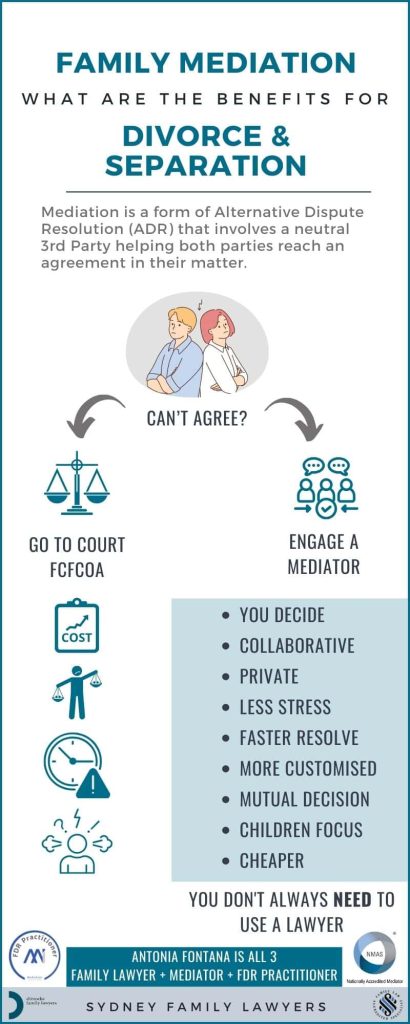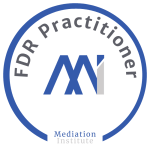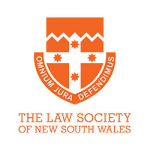

What is Mediation?
Mediation is a type of Alternative Dispute Resolution (ADR) that employs an impartial third party, referred to as a mediator, to facilitate the resolution of conflicts among disputing parties.
It can be undertaken voluntarily, or mandated by a court.
A mediator assists people who are in dispute to reach an agreement.
What do I need to know about the Mediation Process?
Parties involved in the dispute are encouraged to engage with each other directly during the mediation session.
Mediation can be face-to-face or via a web conference (such as Teams or Zoom). In some situations, the parties may choose to remain in separate rooms, with the mediator acting as a go-between. The latter is known as “shuttle mediation”.
What is discussed in mediation is confidential, which allows for a more open exchange of opinions and offers.
Mediation is formal and structured. Each party will be offered a break to think about what has been discussed and get the chance to seek guidance from a lawyer, if necessary.
What does the Mediator do during a mediation session?


The mediator is impartial and independent.
Unlike a Judge in a Court proceeding, the mediator is not going to tell each party what to do or impose a decision on you.
Rather, the mediator explains the mediation process and will guide the parties on how mediation is going to work.
At the start, the mediator will often ask each party to make an opening statement and articulate their perspectives. During the mediation, the mediator will then listen to the issues, and actively steer the discussion towards conflict resolution.
They pose questions to aid participants in identifying their objectives and to clarify the matters in dispute.
The mediator assists the disputing parties to explore options and consider realistic solutions.
The ultimate objective is to aid the parties in reaching a mutually acceptable agreement and to ensure that all parties comprehend the terms of the agreement.
Occasionally, mediators may put the participants in touch with other valuable services – this may be related to children, mental health, financial counselling and so on.
Why should I consider Mediation?
Mediation is not recommended in all disputes, and for some, there may be situations where one party feels intimidated or even unsafe when communicating with the other.
Alternatively, there may be a significant power imbalance, where one party may not feel able to negotiate or effectively communicate their position confidently.
If in doubt, contact a lawyer or mediator to discuss your options.
Mediation is well-suited for participants who feel at ease conversing with the other involved parties. If you are fairly amicable and have the desire for a genuine and timely settlement, then mediation could be the right approach for you.
It is a fitting approach if the parties wish to maintain control over the outcome, maintain confidentiality, and nurture positive ongoing relationships.
Mediation is also valuable when parties seek innovative problem-solving solutions.
With mediation, your privacy is respected, it is generally voluntary, less expensive and is significantly less formal and rigid than having your matter heard in court.
What is Family Dispute Resolution (FDR)?
Family dispute resolution is a special type of mediation that is conducted by a Family Dispute Resolution Practitioner (FDRP).
An FDRP is an independent professional who assists individuals affected by separation to discuss and resolve their parenting or property disputes.
An FDRP may also be Lawyer or a Mediator. Antonia Fontana is all three, which is why many clients engage her services when they are going through family law matters, as she is able to cover many bases that a traditional general practice lawyer may not be able to.
FDRP’s play a crucial role in helping families reach agreements and manage the complex issues related to children, finances, and property when marriages or long-term relationships come to an end. Family dispute resolution is typically conducted in a non-adversarial environment, and the focus is on the needs of the children involved.
Section 60i certificates and parenting orders
A Section 60I Certificate, issued under Section 60I of the Family Law Act 1975 in Australia, is an important document in family law matters, particularly when parties are in dispute over parenting arrangements.
Only an FDRP (such as Antonia Fontana) can issue a Section 60I Certificate.
Before starting proceedings for parenting orders, it is generally a legal requirement for individuals to first attempt Family Dispute Resolution (FDR).
The Section 60I Certificate acknowledges that a mediation attempt has taken place. The certificate may indicate whether mediation was attempted by one or both parties and whether it was successful in resolving the dispute.
If the other party refuses to attend mediation in a parenting matter, the FDRP can still provide a Section 60I Certificate, which is typically valid for 12 months. This Certificate enables parties to apply to the Court for parenting orders, and the Court may order further mediation if necessary.
There are some exceptions to the requirement for a Section 60I Certificate, particularly in cases involving child abuse, family violence, or other reasonable grounds. However, in most cases, obtaining a Section 60I Certificate is an essential step in the family law process when parties cannot agree on parenting arrangements.
Is Mediation Compulsory?
Recent amendments to Court Rules now make it mandatory that – before commencing both financial and parenting proceedings – the parties take “genuine steps” to try and resolve their issues beforehand. Those “genuine steps” could take the form of a voluntary mediation conducted by an accredited FDRP.
To ensure that this requirement is met, whenever someone starts a court case, they are required to lodge a “Genuine Steps Certificate” along with their court application, so the Court can be satisfied that he or she has attempted to resolve the dispute out of court.
Dimocks Family Lawyers have an accredited Mediator and FDRP
The National Mediator Accreditation System (NMAS) is a crucial framework in Australia that regulates and standardizes the accreditation of mediators.
It sets forth a national accreditation scheme that establishes minimum standards of training and assessment for individuals seeking to become accredited mediators. The NMAS is designed to ensure that mediators have received proper training, been assessed for their competence, demonstrated good character, and possess professional indemnity insurance.
Accredited mediators play a pivotal role in helping parties involved in disputes explore all available options and reach mutually acceptable agreements.
NMAS accreditation is a fundamental benchmark in the mediation industry, ensuring that mediators adhere to professional standards and ethics.
Antonia Fontana has NMAS Accreditation and Family Dispute Resolution Accreditation which means she can (and does) undertake mediations in any area of law, although Family Law mediation remains her focus. Antonia has over 15 years of experience as a practising Family Lawyer and understands the emotional and financial stress that can arise from a family breakdown.
Antonia is conveniently located in Sydney’s CBD, between Circular Quay and Martin Place. She is also available via Zoom, for clients that require the convenience of Web Conferencing.












